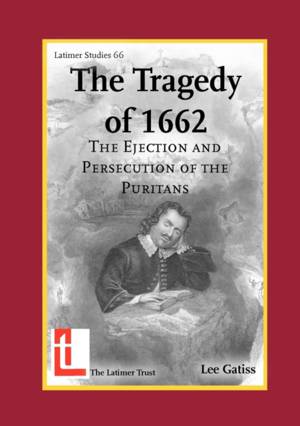
Je cadeautjes zeker op tijd in huis hebben voor de feestdagen? Kom langs in onze winkels en vind het perfecte geschenk!
- Afhalen na 1 uur in een winkel met voorraad
- Gratis thuislevering in België vanaf € 30
- Ruim aanbod met 7 miljoen producten
Je cadeautjes zeker op tijd in huis hebben voor de feestdagen? Kom langs in onze winkels en vind het perfecte geschenk!
- Afhalen na 1 uur in een winkel met voorraad
- Gratis thuislevering in België vanaf € 30
- Ruim aanbod met 7 miljoen producten
Zoeken
Omschrijving
In these days of spiritual ignorance in the country and doctrinal laxity in the church, many Anglicans look back to former times with a certain degree of wistfulness. One date lingers in the collective Anglican memory as suggestive of a golden era: 1662. Yet 1662 was not a good year for those to whom the gospel and a good conscience were more precious than the institutional church. Hundreds of 'evangelical' puritan ministers were forced to leave the Church of England. Persecution of "dissenters" such as Richard Baxter, John Bunyan, and John Owen continued for a quarter of a century as they were banned from preaching and their like-minded congregations forbidden to meet. This study examines the reasons for the Great Ejection and Persecution, and the things modern day Anglicans and Free Churches can learn from these easily neglected events. Lee Gatiss is Associate Minister of St. Helen's, Bishopsgate in the City of London and Editor of The Theologian: The Internet Journal for Integrated Theology at www.theologian.org.uk. Having read Modern History at New College, Oxford and trained for Anglican ministry at Oak Hill Theological College he completed a curacy in Northamptonshire before moving to London. He is a member of the Latimer Trust Theological Work Group and the Editorial Board of the journal Churchman.
Specificaties
Betrokkenen
- Auteur(s):
- Uitgeverij:
Inhoud
- Aantal bladzijden:
- 66
- Taal:
- Engels
- Reeks:
Eigenschappen
- Productcode (EAN):
- 9780946307609
- Verschijningsdatum:
- 31/07/2007
- Uitvoering:
- Paperback
- Formaat:
- Trade paperback (VS)
- Afmetingen:
- 148 mm x 210 mm
- Gewicht:
- 90 g

Alleen bij Standaard Boekhandel
+ 21 punten op je klantenkaart van Standaard Boekhandel
Beoordelingen
We publiceren alleen reviews die voldoen aan de voorwaarden voor reviews. Bekijk onze voorwaarden voor reviews.









